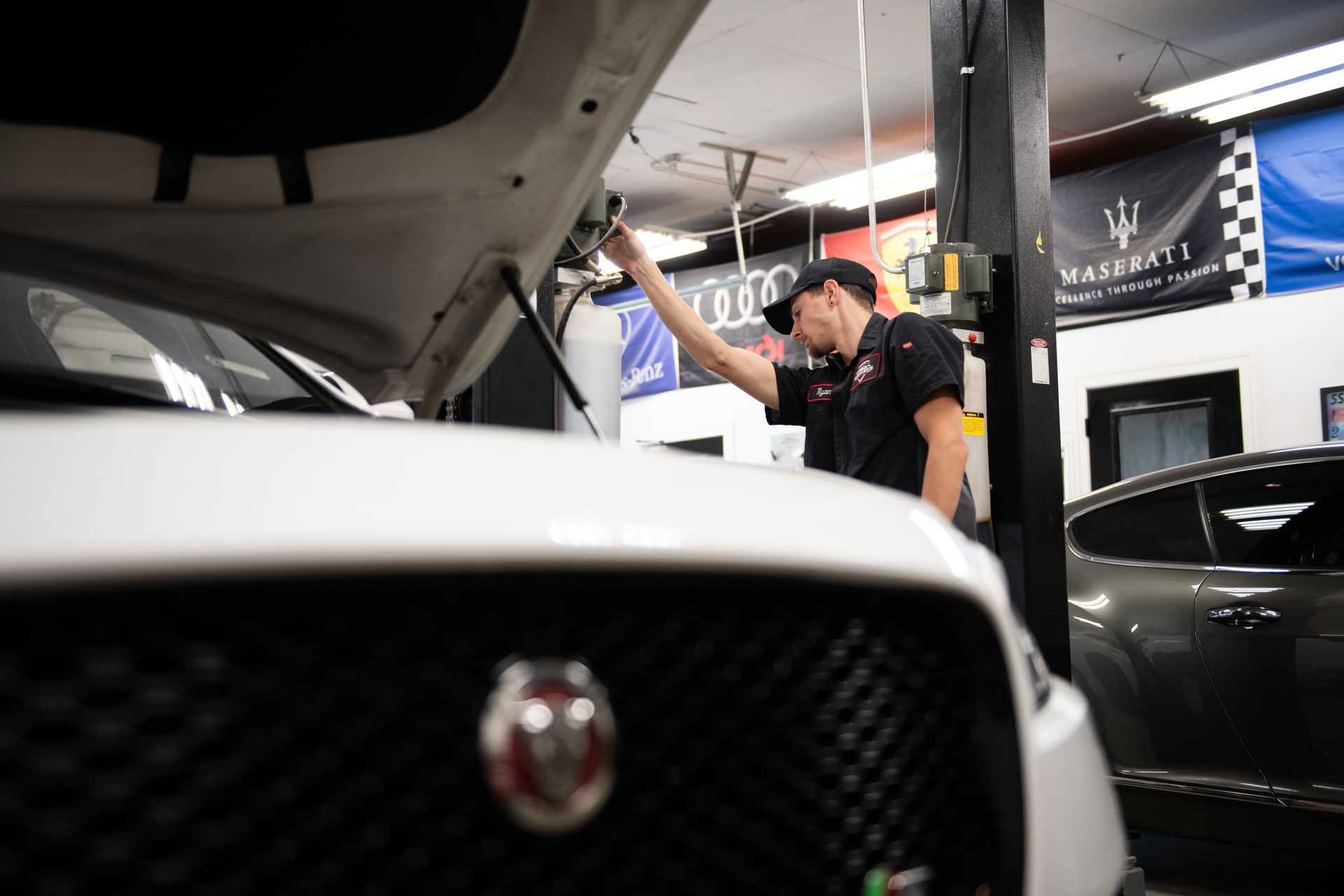Why Low Refrigerant Can Damage Your Car’s AC System
Your car’s air conditioning (AC) system is a crucial component, especially during the hot summer months. It keeps you cool and comfortable on the road, and when working properly, it's easy to forget just how much we rely on it. However, if your car’s AC starts blowing warm air or seems less efficient, one of the most common culprits is low refrigerant levels. At Werner’s Elite Automotive in Indianola, IA, we often see this issue leading to more severe damage if left unchecked.
In this article, we’ll explore why low refrigerant levels are more than just a nuisance—they can cause significant damage to your car’s AC system and lead to costly repairs if not addressed promptly. We’ll also discuss the signs of low refrigerant, the potential damage it can cause, and how regular maintenance can save you time and money in the long run.
Understanding the Role of Refrigerant
The refrigerant in your car’s AC system is the key player that makes cool air possible. It works by absorbing heat from the cabin and releasing it outside the vehicle. When refrigerant levels drop, either due to leaks or wear over time, the system can’t function properly.
At Werner’s Elite Automotive, we’ve helped numerous drivers in Indianola and beyond who initially noticed weak cooling performance. It might seem like a small issue, but allowing refrigerant levels to remain low can lead to much bigger problems.
What Causes Low Refrigerant Levels?
There are a few reasons your refrigerant levels might be low:
- Leaks: The most common reason is a leak somewhere in the system. Whether it’s a tiny hole in the hose or a faulty seal, even a small refrigerant leak can significantly reduce cooling efficiency.
- Worn Components: Over time, the components in your AC system, like seals, hoses, and valves, can wear down, leading to refrigerant loss.
- Improper Servicing: If your vehicle has undergone AC maintenance or repairs without proper refrigerant recharge, the system may be running with less than optimal refrigerant.
Regardless of the cause, ignoring low refrigerant can lead to significant damage.
How Low Refrigerant Can Damage Your AC System
It’s tempting to ignore a slight dip in cooling performance, but low refrigerant can do more harm than you might think. Here’s why:
1. Compressor Damage
The compressor is the heart of your AC system. It’s responsible for circulating refrigerant through the system and ensuring it reaches the evaporator to cool the air. Low refrigerant levels can put the compressor under significant strain, causing it to work harder than necessary. Over time, this extra effort can lead to overheating and, ultimately, failure. Replacing a compressor is one of the costliest AC repairs, so avoiding low refrigerant levels is critical.
2. Reduced Cooling Efficiency
Without enough refrigerant, your AC system simply won’t be able to cool your vehicle as effectively. This inefficiency means your AC will run longer, consuming more energy and fuel. Overworking the system in this way can also lead to premature wear of other components, like the evaporator or condenser, which might require replacement if neglected.
3. Evaporator Coil Freezing
Refrigerant helps maintain a balanced pressure within the AC system. When levels are low, the evaporator coils can become too cold, causing moisture to freeze on them. A frozen coil can block airflow, leading to reduced cooling performance or, in severe cases, a complete system shutdown.
4. Potential for System Contamination
If refrigerant leaks out, air and moisture can enter the AC system. Moisture inside an AC system can mix with refrigerant, creating acid that can corrode internal components, leading to even more extensive damage. This type of contamination can be particularly costly to repair, requiring a full system flush or replacement of damaged parts.
Signs Your Car Has Low Refrigerant
Recognizing the early signs of low refrigerant is crucial to preventing damage to your AC system. If you notice any of the following, it’s time to bring your vehicle to Werner’s Elite Automotive in Indianola for a thorough inspection:
- Weak Airflow: If the air coming from your AC vents feels less cool than usual or the system seems to take longer to cool the cabin, low refrigerant could be to blame.
- Warm Air: When refrigerant levels are too low, your AC might blow warm or even hot air.
- Unusual Noises: If you hear a hissing sound, it could indicate a refrigerant leak. Additionally, a grinding or whining noise from the compressor could signal that it's working harder than it should due to low refrigerant levels.
- AC System Cycling On and Off: If the system frequently turns on and off without fully cooling the car, it may be struggling due to insufficient refrigerant.
How We Can Help
At Werner’s Elite Automotive, we specialize in diagnosing and repairing AC systems, ensuring you stay cool and comfortable on the road. Here’s how we can help protect your AC system from the damaging effects of low refrigerant:
- AC System Inspection: Our technicians will perform a thorough inspection of your AC system, checking for leaks, worn components, and overall functionality.
- Refrigerant Recharge: We’ll refill your AC system with the correct amount of refrigerant, ensuring it operates at peak efficiency.
- Leak Detection and Repair: If we detect a refrigerant leak, we’ll locate the source and repair it, preventing further refrigerant loss and damage to your system.
- Compressor Health Check: We’ll ensure your compressor is functioning correctly, preventing future issues caused by low refrigerant levels.
Regular AC maintenance is essential to avoid costly repairs and keep your system running efficiently. Our team at Werner’s Elite Automotive in Indianola, IA, is dedicated to providing high-quality, affordable AC services that keep you comfortable and your vehicle in top condition.
Conclusion: Don’t Ignore Low Refrigerant
While it might be tempting to ignore a slight drop in cooling performance, the risks of running your AC system on low refrigerant are simply not worth it. From compressor damage to frozen evaporator coils, the potential for costly repairs grows with every mile you drive without addressing the issue.
At Werner’s Elite Automotive in Indianola, IA, we understand how important your car’s AC system is, especially in the heat of summer. Don’t wait until your system fails—schedule an AC system inspection with us today. We’ll make sure your refrigerant levels are where they need to be and that your AC system is ready to keep you cool and comfortable all year long.









